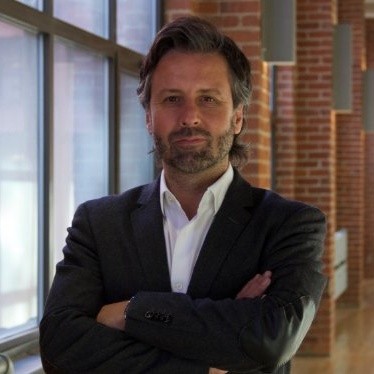
How Vendor Managed Inventory (VMI) Strengthens Supply Chain Resilience and Collaboration
To optimize inventory management, retailers and suppliers are increasingly turning to Vendor Managed Inventory (VMI) tools that transfer the responsibility…
Bona: Building Operational Excellence with Solochain WMS Read the use case

Sologlobe’s head office is located in Montreal, Canada, which serves as a convenient hub by which to access our main market – the United States and Canada. In the early days, our business development activities were focused within the province of Quebec. We soon expanded our footprint into the US. Typically, everything is 10 times bigger in the US market, so it became an attractive strategic move, as well as a natural business progression. Our main business activities have always been focused on our WMS, MES, and EAM offering. These three solutions make up one unified platform: Solochain. We currently employ over 40 people, all working from our Montreal office.
The US is still one of the largest markets in the world in terms of the need for supply chain solutions. The North American market is unique as it is homogeneous when it comes to doing business. In addition to this, the competition amongst supply chain solution providers is still mainly US-based, and comprised of the usual, traditional, players. Having said that, being a Canadian company has proven to be advantageous. Montreal, in particular, has a great reputation when it comes to technology and innovation.
We decided to move towards Microsoft’s ERP solutions (AX, GP, SL and NAV) to help anchor our go to market strategies. This, along with targeted marketing programs, made it possible to accelerate our expansion into the US market. As a smaller company, we had to be extremely focused in terms of business development efforts. We became very involved in Microsoft Dynamics user groups and have built a strong reputation within this ecosystem. Today, 80% of our new business comes from the US owing to this strategy.
While the WMS solutions market is in a mature stage, there is now a need for evolution in terms of technological architecture and functionalities. We work with the very latest technology, and base our software on flexible, service-oriented architecture. One of our highlights is that we can specialize our applications without customizing the platform. Logistics and distribution operations are becoming more and more complex. As traditional business model are rapidly being taken over by new players and also new consumer demands, distributors have been forced to change their processes. All our clients have logistical requirements that are unique to them. We know how important it is for our customers to optimize their processes from the very start. They are under increasing pressure to ensure that everything is handled in an optimized and precise manner, while maintaining client commitments. Solochain has been built around the ability to be flexible in order to meet our clients’ continually evolving business needs. Sologlobe’s solution is a modern and flexible platform, and the company is well positioned to take advantage of this momentum.
In 2015, we felt it was time to accelerate our growth. The first objective was to expand our product line to include EDI, TMS, for example. This would put us in an even better position to compete with some of the large players. We also wanted to expand our international presence, especially in Europe. We examined various options, one of which was to merge with another company. We were very open to listening to what the Generix Group had to offer, especially in terms of international presence and the strong links between our different products. We decided to join the Generix Group family. We would greatly enhance our total solution offering, and significantly enhance our ability to expand within the North American market, and beyond.

To optimize inventory management, retailers and suppliers are increasingly turning to Vendor Managed Inventory (VMI) tools that transfer the responsibility…

In an ever-evolving logistics environment, agile and precise warehouse resource management is essential to remain competitive. With increasing volumes driven…

France’s electronic invoicing reform relies on a Y-architecture, where Partner Dematerialization Providers (PDPs) play a central role in issuing and…

Work with our team to build your ideal supply chain software stack and tailor it to your unique business needs.